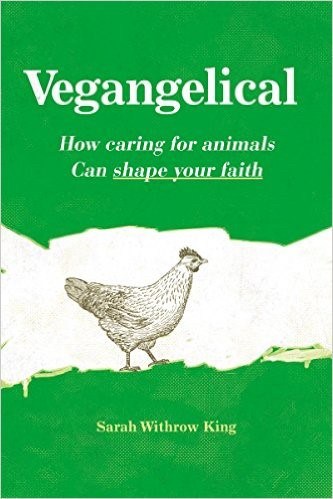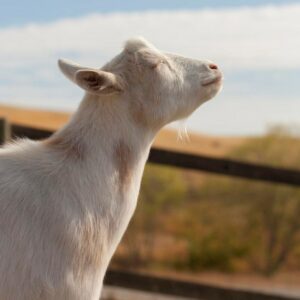
Much of our activism is more smug than sacrificial, “hashtag activism” without an embodied commitment. Social justice is only what love looks like in public when it costs us something.
Our concern for the environment and climate change may make incremental differences in our consumer purchases and recycling behavior, but not much more. Polar bears and melting ice caps are a long way from our daily life. Dirt environmentalism has little personal cost.
So too is our pro-life activism. If we haven’t personally felt the pain of a young woman who feels like her life is over because of her pregnancy, abortion is just an abstraction to most pro-life activists. Again, our social justice smugness belies a lack of true personal cost.
This is why caring for animals can so powerfully shape your faith. So much of our activism costs us nothing, but caring for animals is not like that. It demands more. It expands our view of the “other” to all creation. It challenges our daily habits and forces a measure of consistency to which few are automatically drawn. Here is environmentalism with a built-in personal cost. Here is an existential expression of love for others.
This is why caring for animals can so powerfully shape your faith. So much of our activism costs us nothing, but caring for animals is not like that. It demands more.
Vegetarianism, in its noblest form, is an expression of concern for animal welfare. It expands our commitment of care to all sentient creatures. It integrates our daily discipleship with our creational mandate. It changes our understanding of others and expands the scope of our love. One does not need to become a vegetarian to recognize the spiritual benefits of such a life. Yet this is not a connection made by many evangelicals.
Sarah Withrow King has written a useful premiere on animal welfare for evangelical believers, Vegangelical: How Caring For Animals Can Shape Your Faith. For many evangelicals, interactions with groups like PETA engender an eye roll at best. We are largely immune to this type of concern and tend to place it in the box of left-wing progressive extremism. Sarah takes caring for animals out of that box and puts it squarely on the church altar. Here is a thoughtful theology of animal welfare.
This is a dangerous book and one that will make its reader uncomfortable. Be forewarned. It will make you face facts that have been long hidden from public view—a truth in which we are complicit, because it is easier to look away. These facts demand a personal response. Most people—myself included—will not want to be convinced of the argument. This is a book that will meddle with your life and force you to reconsider your eating habits—not out of guilt like a diet book, but out of love like an encounter with Mother Teresa.
This is a book that will meddle with your life and force you to reconsider your eating habits—not out of guilt like a diet book, but out of love.
King writes, “This book is for Christians who are curious about what ‘animal rights’ is all about and why it matters. It’s a contribution to a larger body of theology about who we are as humans and how we ought to live in the world…I hope this book gets you thinking in new ways.” It did. While I am not yet a consistent vegetarian, I am no longer a naïve untroubled omnivore. This book opened my eyes and troubled my heart. As I said earlier, it’s a dangerous book.
One need not be a total pacifist to be a nuclear pacifist. A nuclear weapon is hard to justify on any basis of just war theory. Likewise, one does not need to be a total vegetarian to comprehend the horrors of modern factory farming.
ASPCA TV commercials showing abused dogs, shivering from cold and malnutrition accompanied by the music of Sarah McLachlan create immediate reactions in my home: “Change the channel!” “Turn off the TV.” The pain of these animals is too much to bear. My wife and I are the dog owners I used to laugh at—indulgent parents of a four-legged child. Let’s just say that Malibu, our English cream golden retriever, lives a charmed life. Of course we subscribe to Dogs Naturally magazine and go to a holistic vet. Malibu is the only dog I know that has had acupuncture. We’re extreme, simply out of an abundance of love.
What if one took this same love and expanded it to all sentient animals? Would it not change the way we understand our responsibility to care for all of creation? As followers of Jesus, as members of a new kingdom, do we increase or deaden our sensitivity toward the other? King writes, “The commodification and objectification of animal life have consequences that reach far beyond the pet shop doors. Violence toward animals and violence toward humans are the fruit of the same sick tree.” Domestic violence and animal abuse go hand in hand. Apprentices of Jesus knowingly stand for something else.
But are we not also a part of a commercial food system that is built on a largely hidden unspeakable violence? Does it not say something that immigrant workers in meatpacking plants regularly suffer from PTSD just as soldiers returning from war?
Consider this one fact the next time you watch a Perdue chicken advertisement promoting the use of oregano in their chickens’ feed. All male chicks born at egg farm hatcheries are slaughtered the day they hatch. Shredding them alive in a large blender is how this is done; a process called “maceration.” Matthew Scully notes, “If it were some guy in his backyard ‘macerating’ a handful of live baby birds, instead of a supposedly respectable global enterprise doing it to billions of them, witnesses would call the police, who would call in the psych unit.”
King is a gentle guide to the uninformed, but she does not mince words. “The modern use and abuse of the created world is a system of deep brokenness and significant sin, and this includes the system that breeds, raises, and kills billions upon billions of sentient, God-created, God-loved creatures each year.” Vegetarianism is a practical response to this systemic injustice.
And yes, it is a social justice response that costs us something. Fasting is a spiritual discipline that uses hunger to remind us that we do not live by bread alone. Vegetarianism too is a regular reminder that we live in an interconnected world where love can prevail in the little choices we make. King does not focus on a list of dos and don’ts, on creating a new legalism. She simply asks us to live life in such as manner as reduces suffering where we can. Wise and gentle advice, that sounds like Jesus. If my dog, Malibu, could talk, I’m sure that she would concur.
John Seel is a consultant, writer, cultural analyst, and cultural renewal entrepreneur. He is the founder of John Seel Consulting LLC, a social impact consulting firm working with people and projects that foster human flourishing and the common good. The former director of cultural engagement at the John Templeton Foundation, he is a national expert on millennials and the New Copernicans. He has an M.Div. from Covenant Theological Seminary and a Ph.D. in American Studies from the University of Maryland (College Park). He and his wife, Kathryn, live in Lafayette Hill, PA. He directs the New Copernican Empowerment Dialogues at The Sider Center at Eastern University.



One Response
This looks like an interesting book, and maybe worth a read.
It does not appear to promote vegetarianism from a theological point of view, like seventh Day Adventists. I hope that is the case.